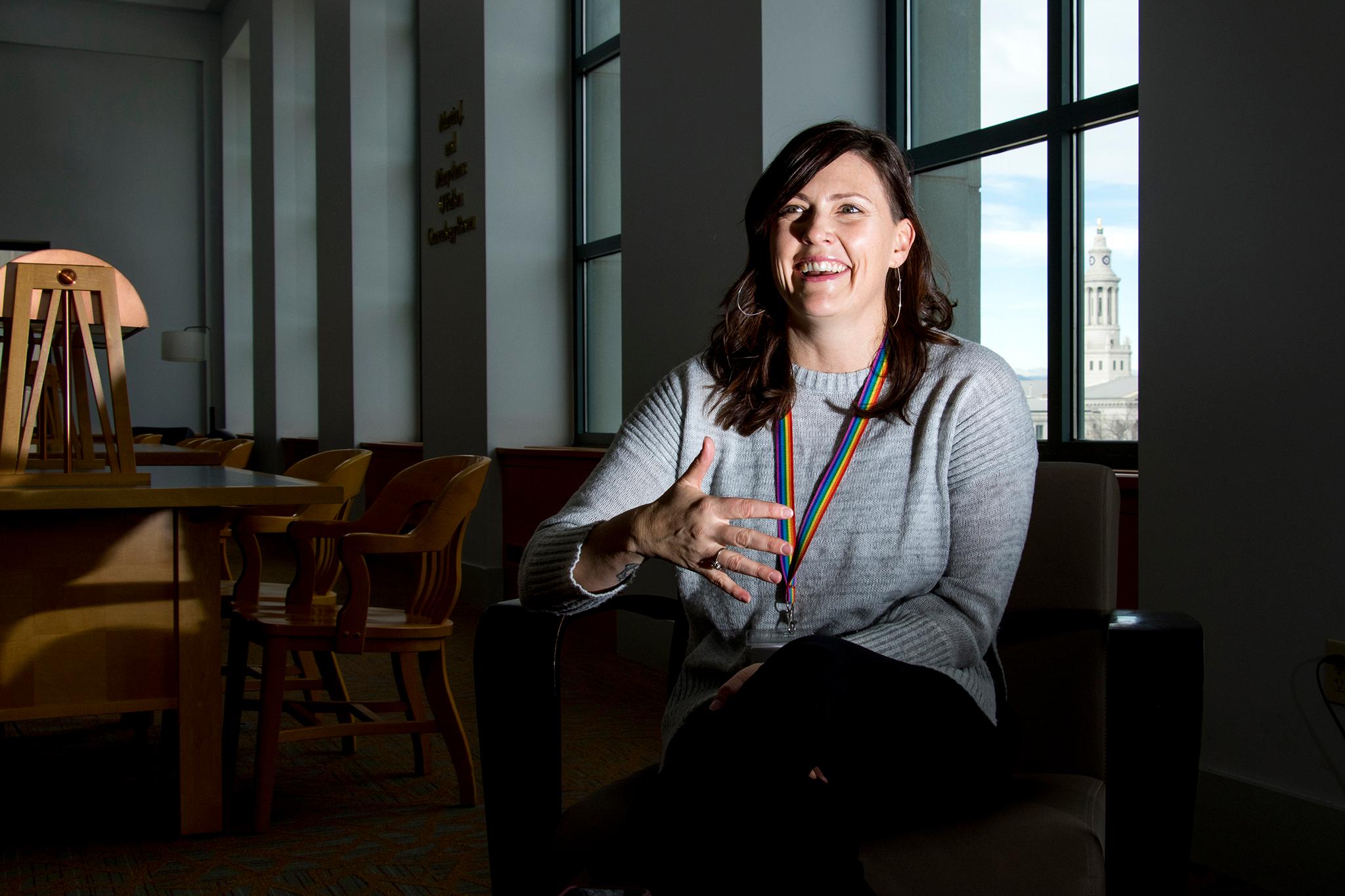It's impossible to predict who will come through the doors needing Sarah Humble's attention. Her client load is five times what it was in a similar position she held a few years ago. But she's not complaining.
"This is an incredibly rewarding job," said Humble, whose work involves ensuring people whom society has pushed to the margins are seen, heard and supported.
If that sounds like the job for you, and you like libraries, you're in luck. Denver Public Library is looking for a few empathetic people to join Humble as peer navigators. Requirements include having experienced homelessness or jail, or wrestled with mental illness or addiction. Immigrants, including refugees, and Spanish speakers are urged to apply. Erika Martinez, the Denver Public Library's director of communications and community engagement, said it also helps to have a sense of humor.
"Totally," Humble concurred softly. "Totally."
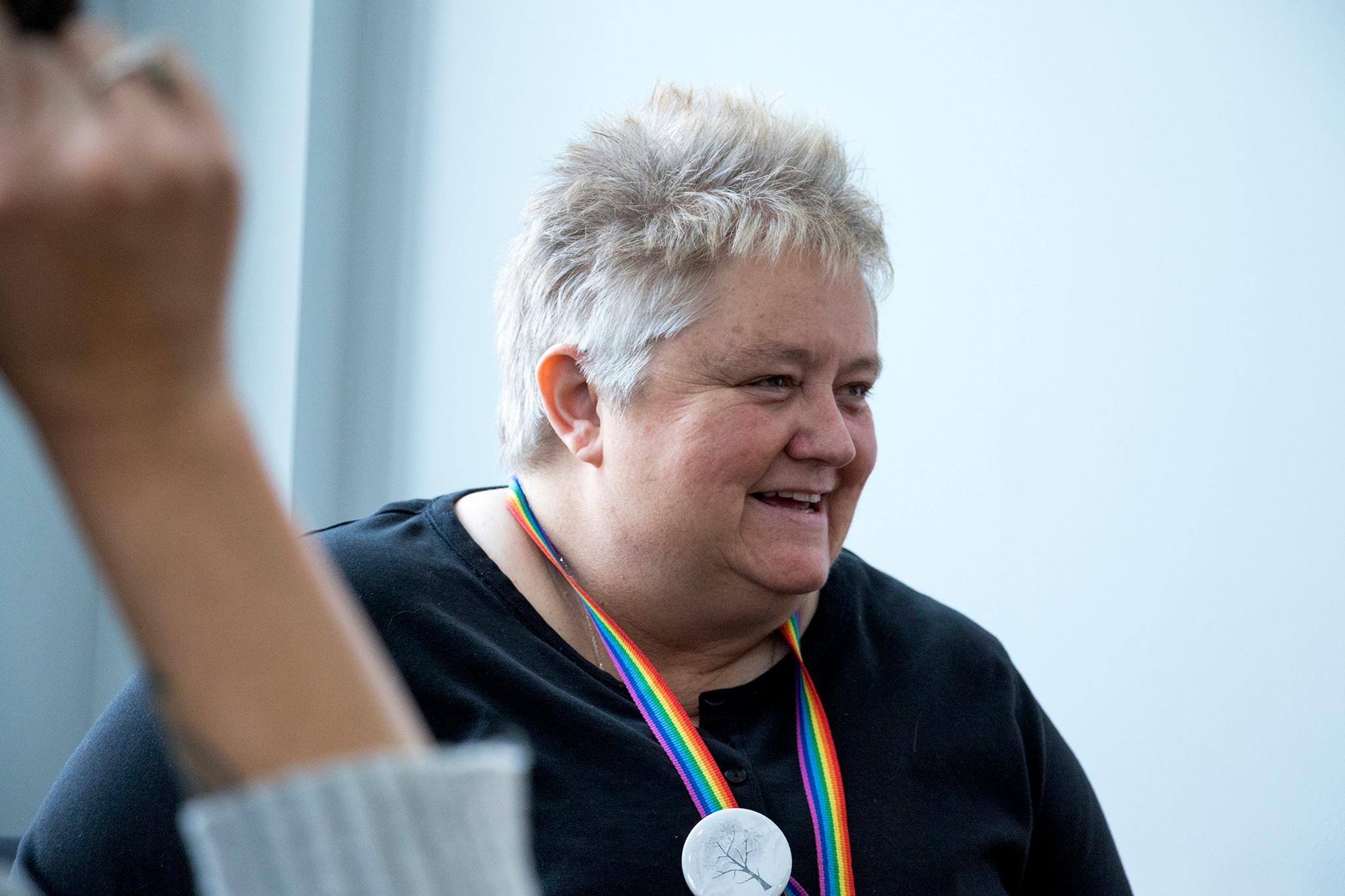
Humble's boss, library social worker Elissa Hardy, hopes to add two navigators to her team early next year.
Humble is among four current peer navigators based at the Central Library who themselves have faced challenged finding homes, health or peace of mind. That means library visitors who have struggled can get help from a staff member with stories similar to their own when they come seeking leads on housing or a job, or perhaps just someone to listen in a moment of crisis.
Libraries throw their doors wide.
All over the country libraries have become havens as funding for mental health care has dwindled, a drug addiction crisis has grown and wages have failed to keep up with housing costs. It's not just a national problem. Journalist and library-lover Susan Orlean in "The Library Book" describes attending a conference about the future of libraries at which delegates from Germany, Zimbabwe, Thailand, Colombia and elsewhere spoke of the impact of homelessness on their work.
"The library's commitment to being open to all is an overwhelming challenge," Orlean wrote. "But a library cannot be the institution we hope for it to be unless it is open to everyone."
Four years ago Denver became one of the first libraries to try to meet the challenge by hiring a social worker. Hardy, formally the library's community resource manager, recently led a Webinar for the library in Melbourne, Australia, which is hiring its first social worker.
"The library is a place where people can just be. Be a person in society," Hardy said.
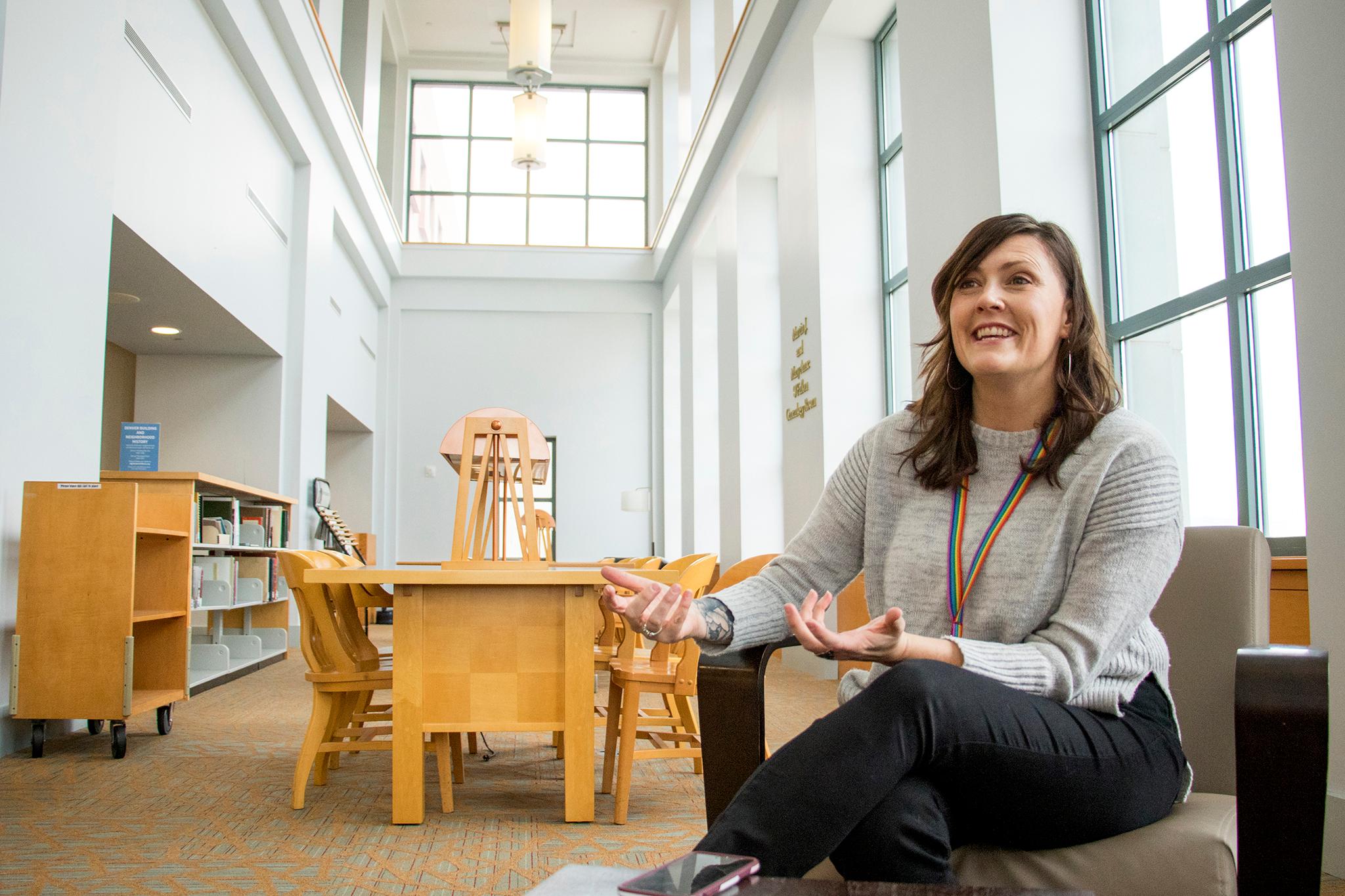
Humble was among the first peer navigators Hardy hired, in early 2017. As the Denver Foundation notes, the navigator approach of mentoring and coaching has been established as a way to help patients make their way through our sometimes complex healthcare system. The foundation has embarked on a five-year effort to broaden the practice to connect a variety of underserved communities to housing, jobs and other services.
Humble had worked as a peer navigator for a program outside a library and on a smaller scale in Fort Collins. After hearing about the job at the Denver library, she conducted a reconnaissance. She arrived at 14th Street one day about 20 minutes before the 10 a.m. opening to find 30 to 40 people "waiting to get into the warm, safe library." Humble stopped by Hardy's office and remembers being greeted. She did not identify herself. She sat at a computer and surveyed the scene. What she saw cemented her decision.
"I was going to apply anyway. I was unemployed," Humble said.
She added: "This environment has been so welcoming and warm.
"We have a restroom. We also have computers -- people can connect with their families on Facebook or whatever. Sometimes I forget, but we also have a lot of books for people to read. You can charge your phone."
Hardy's team members can sit down at a computer with a library visitor who has let his federal food benefits expire.
"We're helping them turn that back on so they can eat," Hardy said.
A peer navigator might accompany another visitor to her appointment at a service agency. Referrals are made to programs such as Denver Day Works, which places some of its work experience clients in maintenance and other jobs at the library.
"It's really cool to have someone as a colleague that you've helped," Hardy said.
Humble said, "What we do is we navigate people to resources."
The Denver library peer navigator program was initially started with a federal grant and in collaboration with the Colorado Mental Wellness Network, a nonprofit that specializes in peer support. Starting this year peer navigators were included in the city budget. Two more social workers were added this year, bringing the total to four, who cover the city through library branches and Central Library. The four peer navigators are based at Central Library. Increasingly, such outreach is seen simply as something a modern library does.
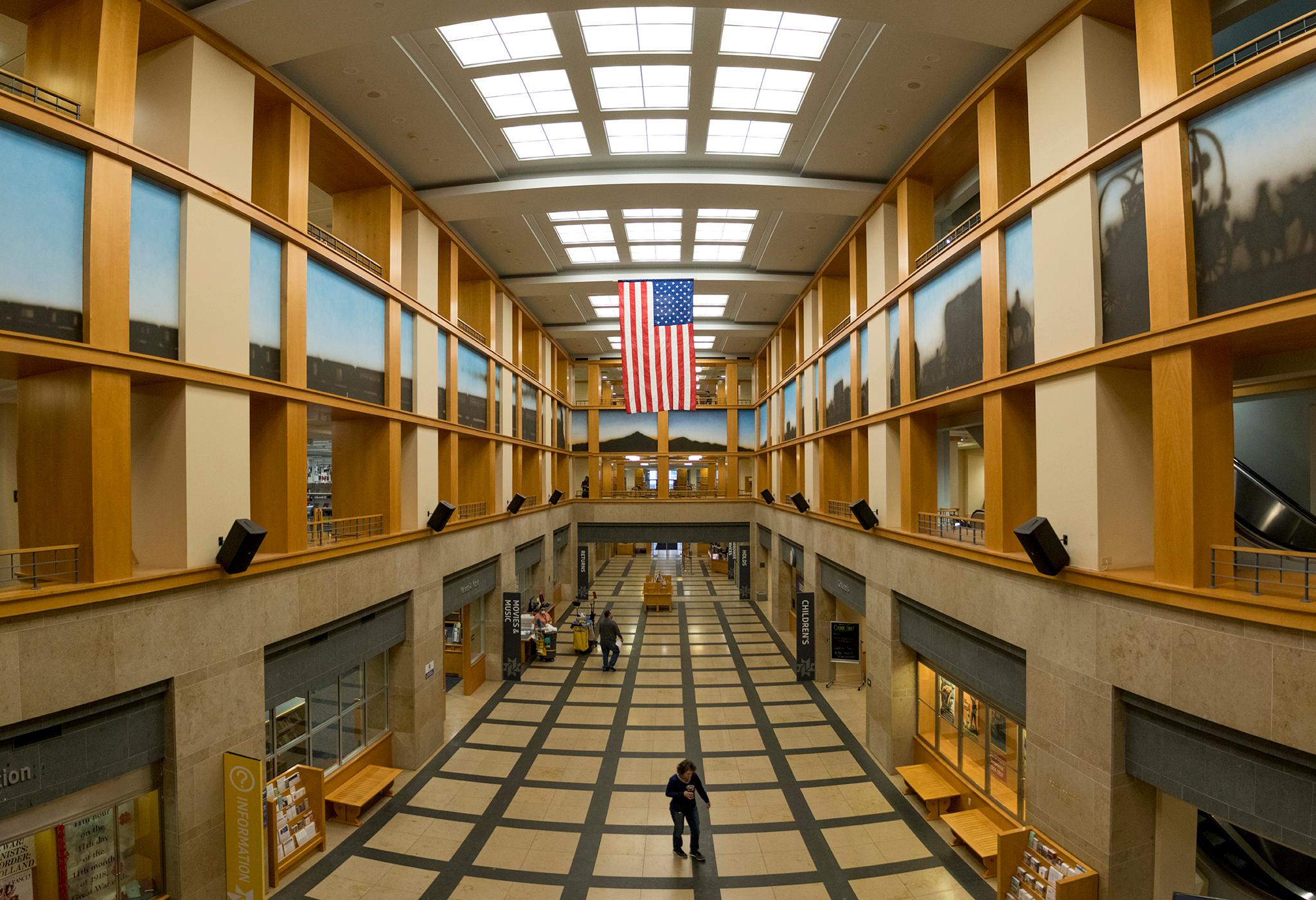
What else does a library do?
The Denver Public Library also has a librarian dedicated to helping budding entrepreneurs develop plans and providing other guidance for small businesses. The Community Technology Center on the fourth floor, at the end opposite Hardy's office, has 120 computers that card-holders can use for at least an hour, longer if no one is waiting. Non-cardholders can log onto computers in a smaller clutch for 15 minutes. Rachel Fewell, the library's central administrator, said those non-cardholders are sometimes out-of-towners looking for a place to print out an airline boarding pass. The library's maker space, decorated with a sign proclaiming, "Libraries transform," has sewing machines, a shop class's supply of tools and a recording studio furnished with guitars and a keyboard. Children's story times draw families, as does a program that allows card-holders to check out passes to museums and state parks.
"Our books are still our highest circulating category," Fewell said.
People sometimes ask Fewell how to find the "library-library." She directs them to the fifth floor Western History & Genealogy Department, which has quiet places to read and reference librarians in their natural habitat - behind a desk.
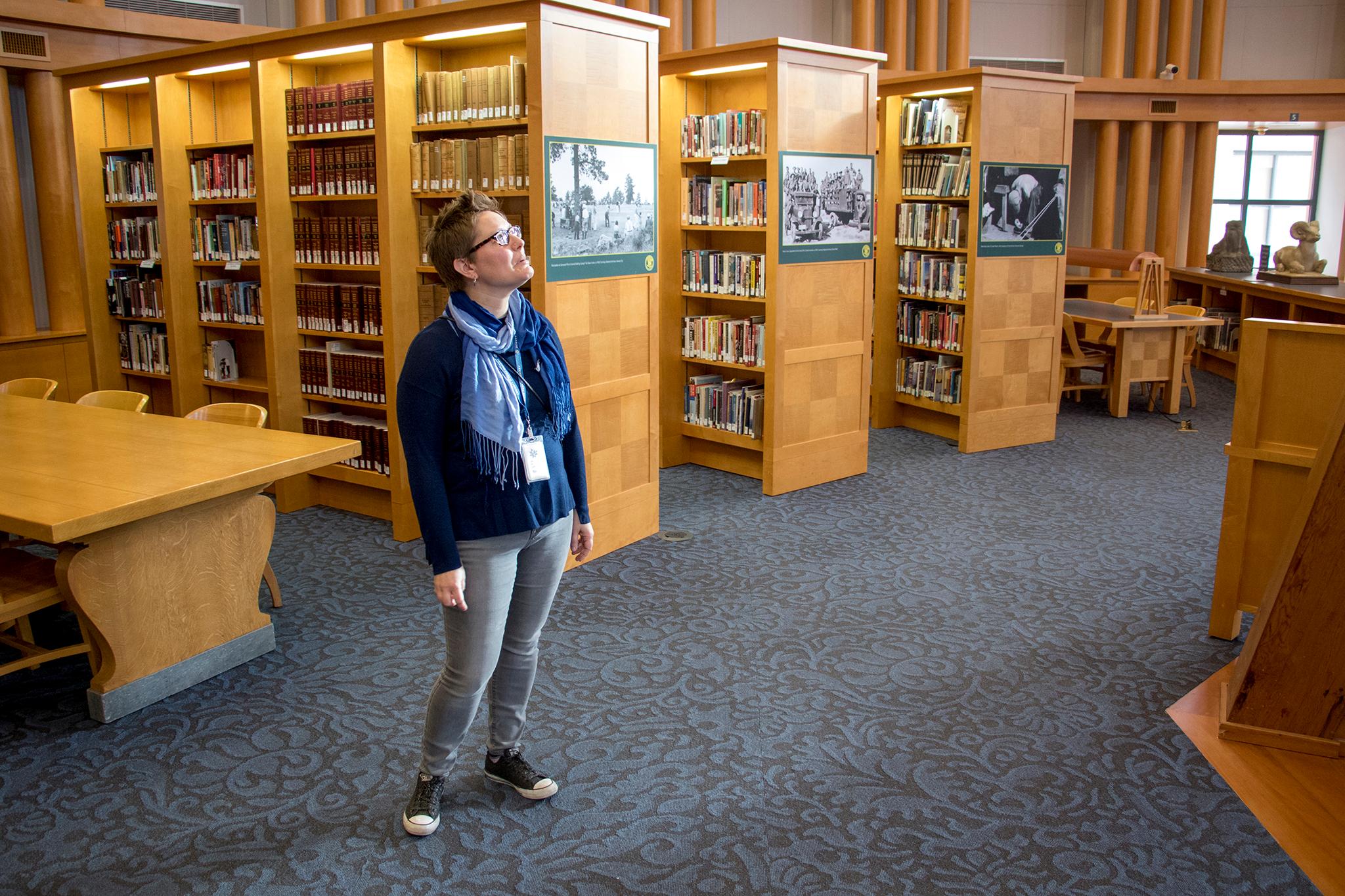
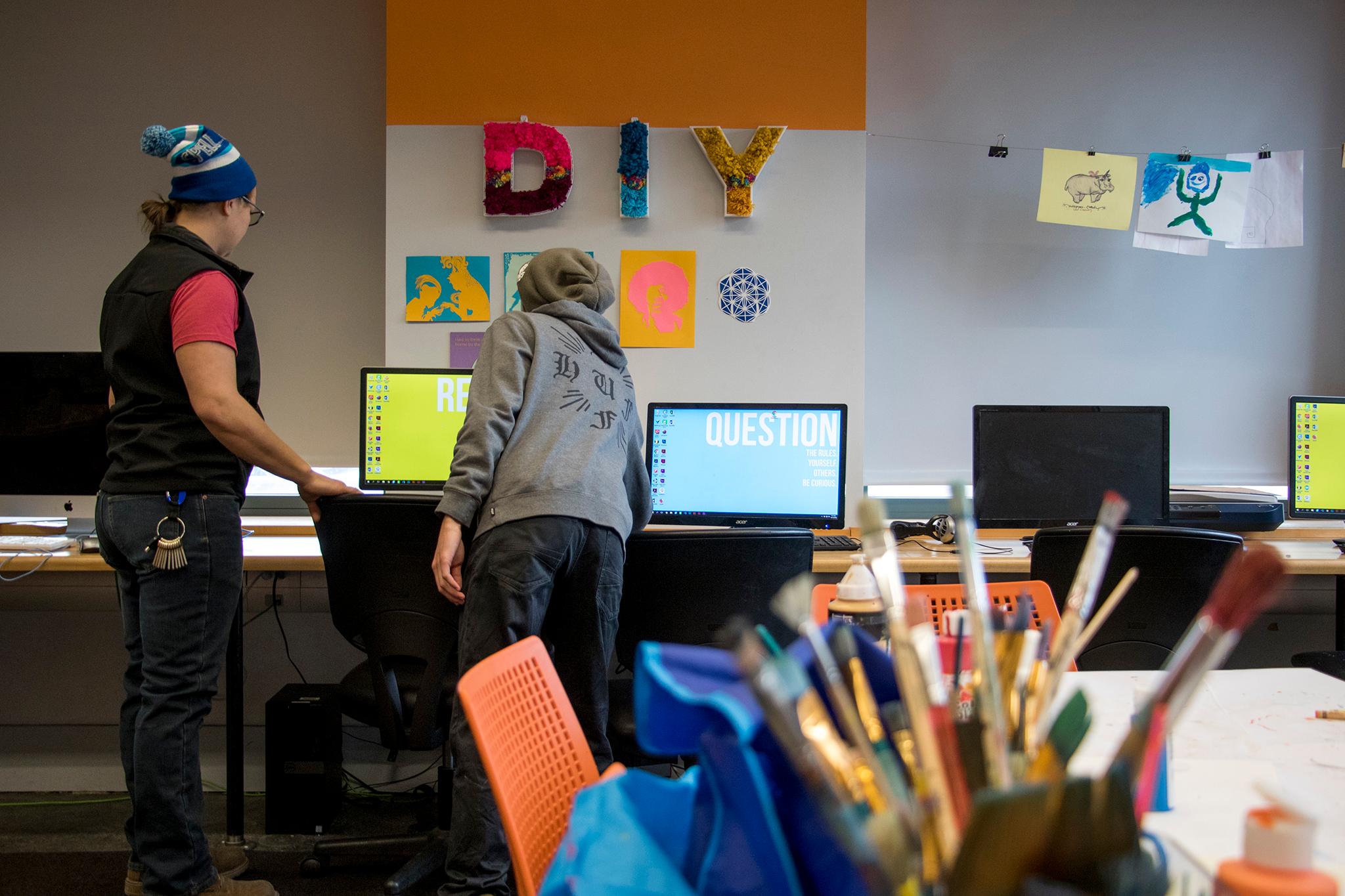
The mix of people and needs can lead to conflict. Some of the outreach by the social work team addresses the reality that other library users and librarians are sometimes made uncomfortable by people experiencing homelessness or fear them. Familiarity can help, Hardy said, pointing to a program borrowed from the Dallas library in which different departments - security, IT, the executive team, children's librarians - hold coffee and donut get-togethers with the public. Since the monthly coffees are first thing in the morning and food is offered, the public often means people experiencing homelessness.
Hardy tries to turn conversations with into opportunities to raise awareness about the causes and scope of homelessness. She said everyone can play a role in finding solutions.
"The reality is that it takes the whole community," she said.
Meanwhile, she is finalizing the postings for the two new navigators, whose arrival will allow move coverage of other branches. The job description calls for applicants with "resiliency related to adverse life experiences." As the staff grows and more people become aware of the resource, more connections are made. Hardy said her team started the year with 273 contacts with library visitors in January; in September it was 1,083.
Humble said, "I know when we get two more peer navigators we'll be able to do more.
"That's what we're here for."

